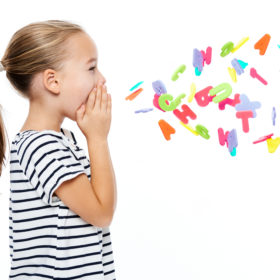What Your Child Can Gain from a French Immersion Program

Should I enroll my child in a French immersion program?
It’s a big debate that many Canadians have: will enrolling your child in French immersion affect their grades? The reality is that choosing French immersion will not negatively affect the average student’s academic trajectory, but it may even help sharpen language and math skills.
Research shows that children who learn a second language have a variety of cognitive benefits, such as mental flexibility, nonverbal problem-solving abilities, and enhanced critical thinking skills.
Did you know that French is spoken by more than 300 million people worldwide? It’s also the second most widely learned language after English, with over 7.9 million Canadians (around 20%) speaking French.
With that many people speaking French, and Canada being a bilingual country, it’s an enormous asset to enrol your child in a French immersion program.
A French Immersion Program’s Value
Children who do not speak French can enrol in a Canadian-made educational program called French immersion. Most subjects are taught and learned to children in French, such as:
- Math
- Science
- Art
- History
- Music
- Geography
- Physical education
The immersion program in Canada has drawn praise and spread quickly throughout the world. Many parents have enrolled their children in schools that provide these programs, even though it is optional.
The purpose of the French immersion program is to:
- Take use of children’s innate capacity to study and learn French with ease
- Make use of their social skills, and expose children to a new language and culture.
- Give kids opportunities to participate in native language development, academic success, and overall cognitive development
How French Immersion Programs Benefit Your Child

1. French Immersion Improved Cognitive Skills
According to studies, learning a new language at a young age—particularly between the ages of 5 and 7—helps your child develop cognitive abilities like reading comprehension and problem-solving.
Being bilingual or multilingual helps people and students to increase their analytical and creative thinking abilities. Don’t worry if your child needs help learning two languages at once. People’s cognitive flexibility will increase as they age.
Being bilingual or multilingual improves a person’s capacity to adapt to and manage unexpected situations as they grow.
2. French Leads to Better Educational and Career Opportunities
Better educational possibilities are available to your child if they are fluent in English and French.
Being bilingual means your child can enroll in both English and French post-secondary schools or universities. Also, when applying to post-secondary education, showing that your child was in an immersion program can be more appealing to admission advisors.
Plus, it opens the door for better employment rates and career advancement. In Canada alone, there are many multilingual jobs available. On top of that, bilingual employees make about 10% more money than their anglophone or monolingual counterparts.
3. A Second Language Leads to Excellent Communication Skills
Enrolling your child in French immersion will help them to express themselves and communicate their ideas more effectively than individuals who speak one language.
Additionally, teaching your child a second language helps them become sensitive communicators. They can comprehend and react clearly, which helps them recognize cultural differences and effectively interact with people from other backgrounds.
Check out these articles if you’re still unsure about French immersion:
- Is French Immersion Right For My Child?
- French Immersion In Canada
- Surprising Benefits Of Learning A Second Language
Need Help with French?
Whether your child’s French academic goals are to get a great mark this year or study at the Université de Montréal one day, we are here to help.
Contact a location near you to get started today!




